5 Things to Know When Your Child is Diagnosed With Asthma
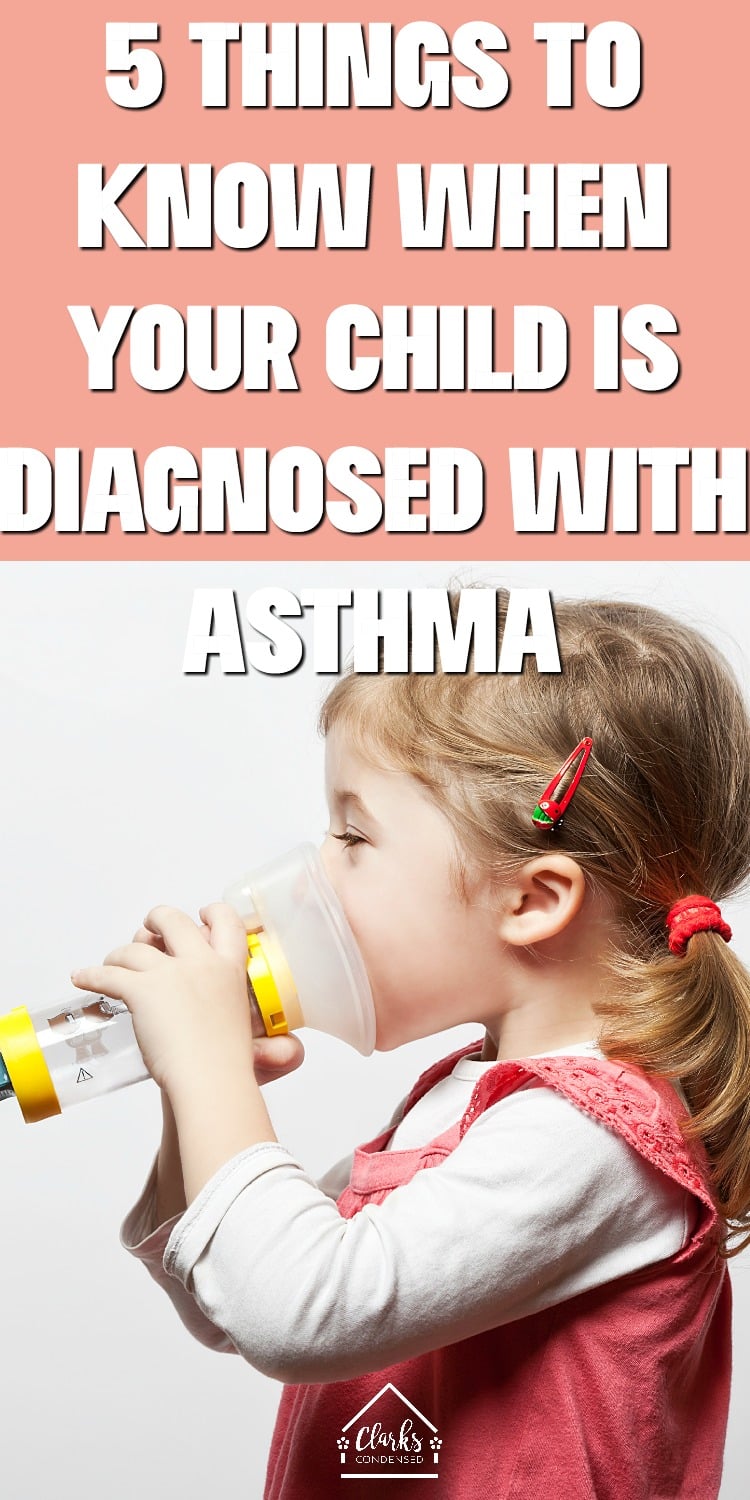
I’ve shared in the past how both of my boys were diagnosed – and hospitalized – with RSV (Respiratory Syncytial Virus) as babies.
After these scary episodes, they continued to have different breathing issues, especially when they got sick.
It seemed like anytime they caught any bug, the cough would linger on for weeks – sometimes months – afterward.
And at one point for each of my boys, they were diagnosed with asthma – particularly cough-variant asthma and nighttime asthma.
Although we do not struggle with the day-to-day trials of chronic asthma that many children do, whenever they get sick, it can be scary.
Jack had nighttime asthma as well (though it’s vastly improved over the past year), and it was scary to hear him having trouble breathing throughout the night. He would just cough and cough all night long – even though he wasn’t really sick.
It was somewhat of a relief when he was diagnosed with asthma at that time, and we were able to see significant improvement with using his inhaler before bed. But I will be the first to admit that I was NOT good at always giving it to him.
Today we’ve partnered with Cohero Health to bring awareness to asthma diagnoses and a few things you should know about how best to help your kids manage their asthma.
It is Serious – But Treatable
Asthma is a serious and life-threatening issue – especially when it goes untreated.
However, there are many treatments available, both for preventative measures and when someone is being triggered or having an attack.
The most important thing is to come up with a treatment plan, know what to do when an attack comes on, and, when your child is old enough, help them to understand triggers.
If your child is diagnosed with any form of asthma, you will need to meet with their trusted care provider to learn more about it. With both of my boys, we met with a pulmonologist who taught us about different inhalers, when we should use them, etc.
It’s important to involve your child in the conversation early so they can learn to manage their condition and advocate for themselves. When they are small, you are usually with them and will be in charge of all care – but as they get older and aren’t always with you, they need to know what to do in an emergency.
It doesn’t mean your child can’t live a fun and happy life. In fact, by making sure you know how to manage it, your child can run and play like other kids! Asthma is a diagnosis – but it can be managed.
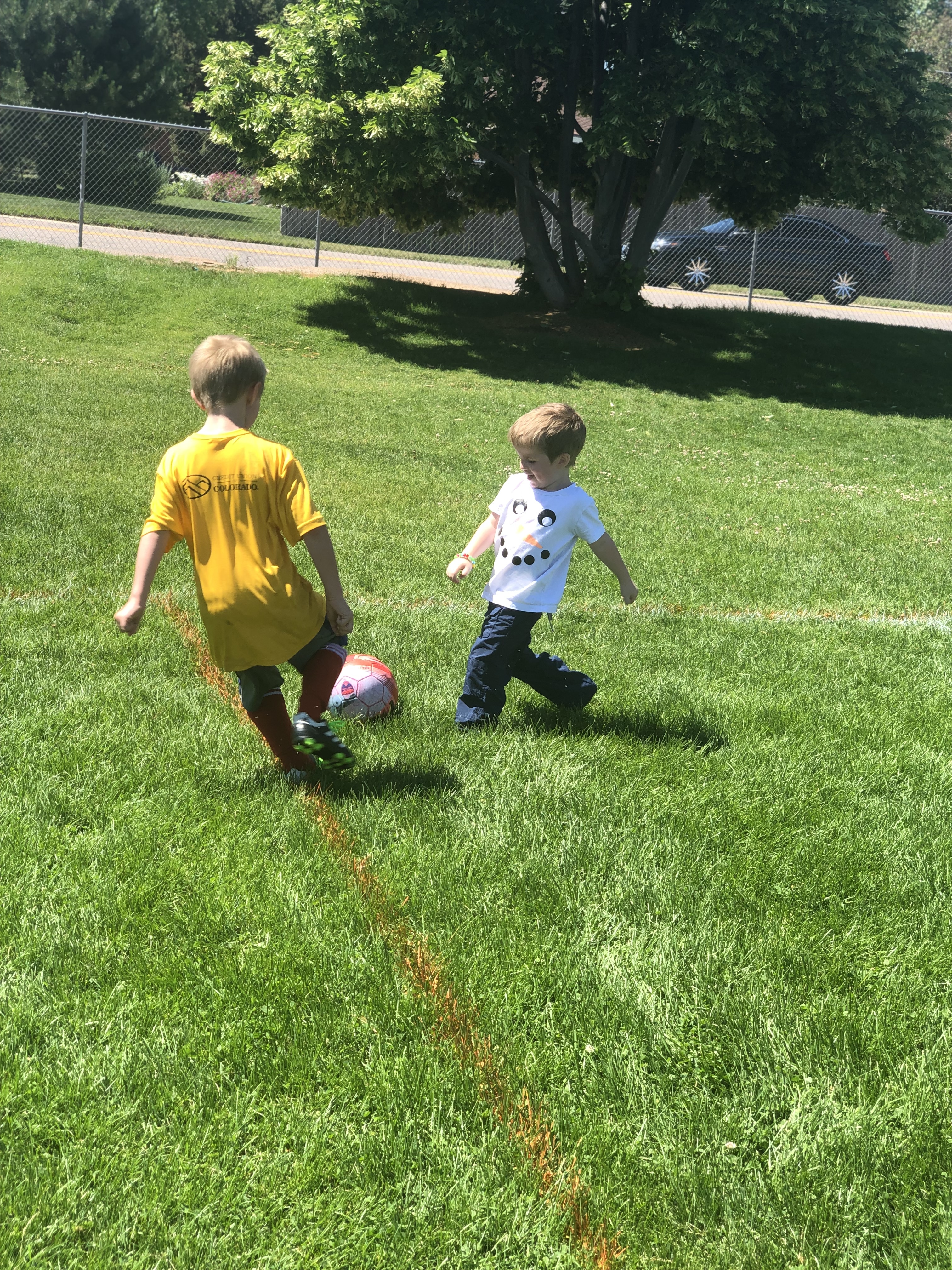
There Isn’t a One Size Fits All Diagnosis
I think when people hear asthma, they automatically assume that the person can’t breathe most of the time, must always carry around an inhaler and is always on the verge of an attack.
The truth is, there are various forms of asthma, as I’ve already mentioned. And while you absolutely need to be aware of the implications of each one, knowing how to manage it is key. According to WebMD, here are the different types:
- Exercise-induced asthma
- Cough-variant asthma
- Occupational-induced asthma
- Nighttime Asthma
- Allergy-related asthma
Understanding what kind of asthma your child has is so important – not only to their well-being, but for knowing the best treatments.
It can be easy to even say “oh well, their asthma isn’t that serious – it’s just at night…or with exercise…etc.”, however, no matter the severity of the asthma – it IS serious and has to be treated as such.
Early Treatment is Key
As with most health issues, prevention and early treatment is key to managing a condition.
I know we used to struggle with giving an inhaler daily (sometimes multiple times a day during high risk times), and we could definitely tell a difference in our son’s asthma when we were more on top of things.
Set timers and make preventative care part of your day to day routine. This will benefit your child’s health now and as they get older.
If you notice your child getting worse, don’t hesitate to call their medical provider. Asthma attacks can come on quickly! Knowing the signs is so important – and even more importantly – teaching your child how to recognize when they are getting worse can be life-saving.
Understand it can get better or worse
For many, asthma is a lifetime diagnosis – and it can get worse over time.
However, other children outgrow it as they get bigger. As my children have gotten older, they seem to be in this camp, which I’m grateful for.
Jack no longer coughs all night long. This last sickness season, we only had to use treatment a couple of times for each of them. As I’ve seen friends whose children have been admitted to the hospital due to asthma, I can’t help but feel grateful that theirs has gotten better with time.
With that said, I know that they aren’t ever truly out of the woods. My brother was diagnosed with exercise-induced asthma as a teenager, despite not having any issues before.
We also know that even though our kids seem to have outgrown asthma they used to have, that if they get sick with any kind of respiratory illness, they will likely need an inhaler or nebulizer treatment, so we don’t mess around with that. It’s scary to have to go to the hospital or ER and early treatment and recognition of symptoms is key.
Know Their Triggers
Not every child will have the same triggers. Some will be triggered by illness, others by exercise, and others by environmental factors.
For the longest time, anytime we would go to Utah, Jack’s symptoms would always get worse because of how bad the air was there (due to the inversion). We realized that whenever we went there, we had to be careful to limit his time outside and make sure we had an inhaler in case he got sick.
Keep track of their symptoms and when you notice them getting worse. This can be really valuable as you work with their care provider as well – and in many situations, you can even eliminate those triggers from their lives.
It Takes Time
It can take time to get used to treating asthma – and even if you’ve been managing your child’s symptoms for years, it can be scary when an attack comes on.
When my boys were little, it was very hard to even get them to use the inhaler – especially Oliver. We would have to hold his head and try and soothe him from screaming as we administered his medication.
Fortunately, we aren’t having to do maintenance treatments for either boys anymore, but it took time for us to figure out the best methods for giving them their treatment.
It might also take time to figure out the right medication. Oliver’s pulmonologist tried a few different kinds with him before we found the right medication.
As I mentioned, we have partnered with Cohero Health and their new BreatheSmart Digital Tool.
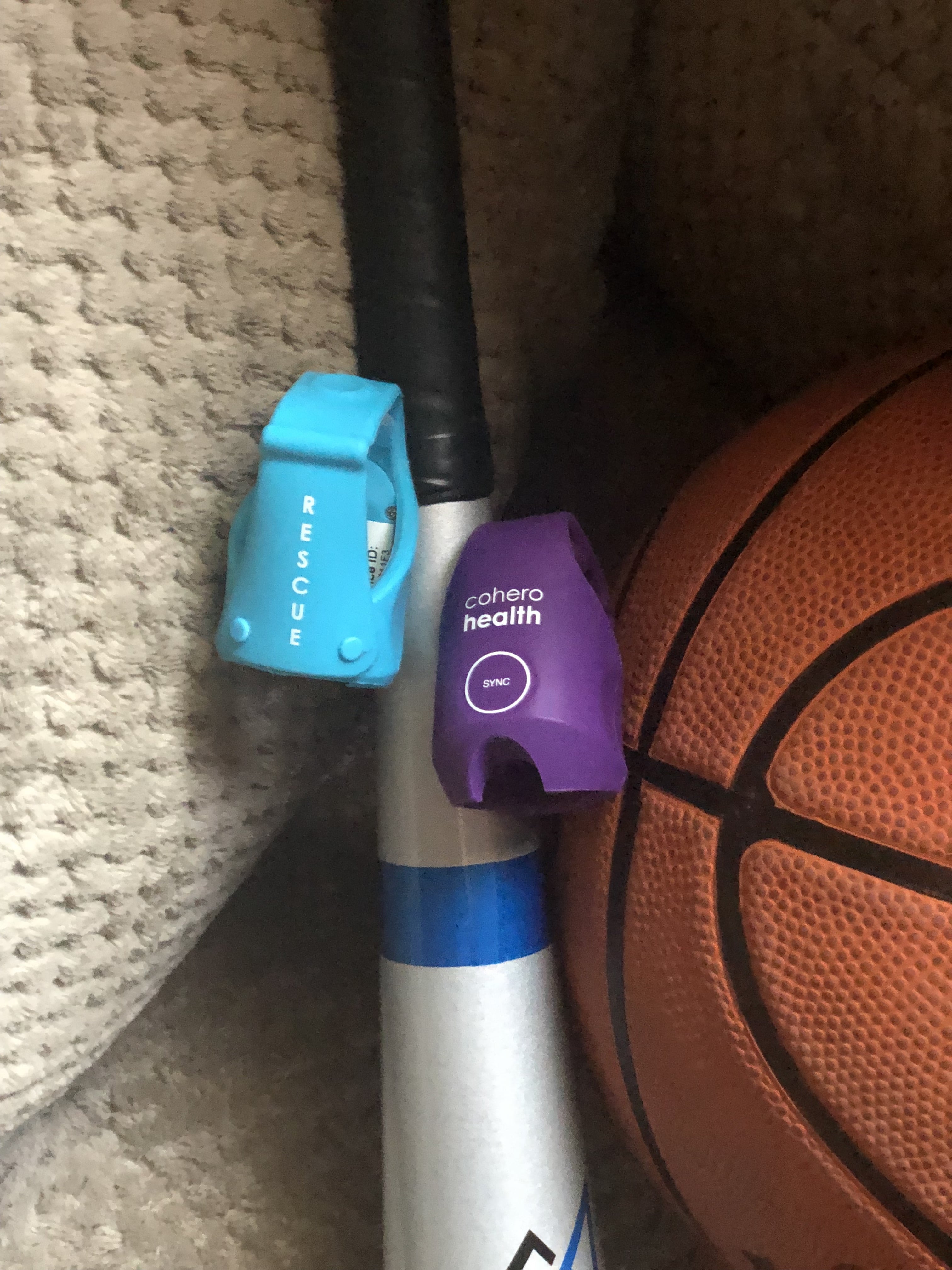
This tool is a great way to help make managing asthma easier. Although it’s primarily geared toward older children and teens with their own smart phones as you try and get them to manage their own care, it can be great for parents who are trying to get a handle on their child’s asthma care.
The mobile app allows you to easily track symptoms and triggers so you and your child can better understand what might be causing their asthma to get worse.
It sends push notifications to remind you to administer medication, what amounts, etc. This is something that I think would have been so helpful to me when our kids had to be on inhalers on a daily basis. I’m so bad at remembering!
It comes with the HeroTracker Sensor that they hook up to their inhaler, and all the data is transmitted to the app.
Everything in the app can be easily shared with a care provider – or if your child is older and managing their own care – a parent can review everything carefully.
I think that it’s a great app to get started with when your children are young. They can look at it and you can discuss their treatment, and as they get older, it will make it easier to pass off the responsibility to them.
I don’t know about you, but my kids love when I let them do anything with my smartphone (probably because I’m a *mean* mom who rarely lets them touch electronics, haha), so when I can use an app to help teach and encourage them – they really latch onto it.
As children get into their teens, the majority take over responsibility for their own care (which is great!). However, nearly half of asthmatic adolescents aren’t keeping up with their medication like they should be – which can be deadly.
A lot of that is because they start to think they don’t need to take the medication – or they just forget. I think it’s so important to help our kids become autonomous and manage their own health – but we have to help them too, and that’s where BreatheSmart becomes an invaluable tool.
Studies have shown that portable electronic devices are effective because they are easy to use and convenient – and when it’s paired with an audiovisual reminder, it’s even better.
One study showed an 84% compliance level amongst asthmatic teens receiving reminders on their phone – compared to the 30% in the control group who had no tracking.
I mean – even for me – I have a much easier time tracking my medical conditions when I am able to track them on my phone.
I am grateful that at this point, my boys don’t have to be on regular medication. However, there was a point where we did have to administer it regularly, and it felt so overwhelming.
Knowledge is power and having more resources at hand to help get a handle on a chronic illness can make such a difference.
Although I think we often live in an all-too-tech connected world, I am so glad that there are helpful tools available to help us and our children manage conditions to prevent major issues.
What is something you wish you knew when your child was diagnosed with Asthma?
For more information about Cohero Health and their BreatheSmart tool visit them at their website: https://coherohealth.com/BreatheSmart/ Or follow them on Twitter and Facebook to learn more!
BreatheSmart is currently only available in the following 10 states for now – Alabama, California, Connecticut, Kentucky, Massachusetts, Nebraska, Ohio, Texas, Virginia, Wisconsin

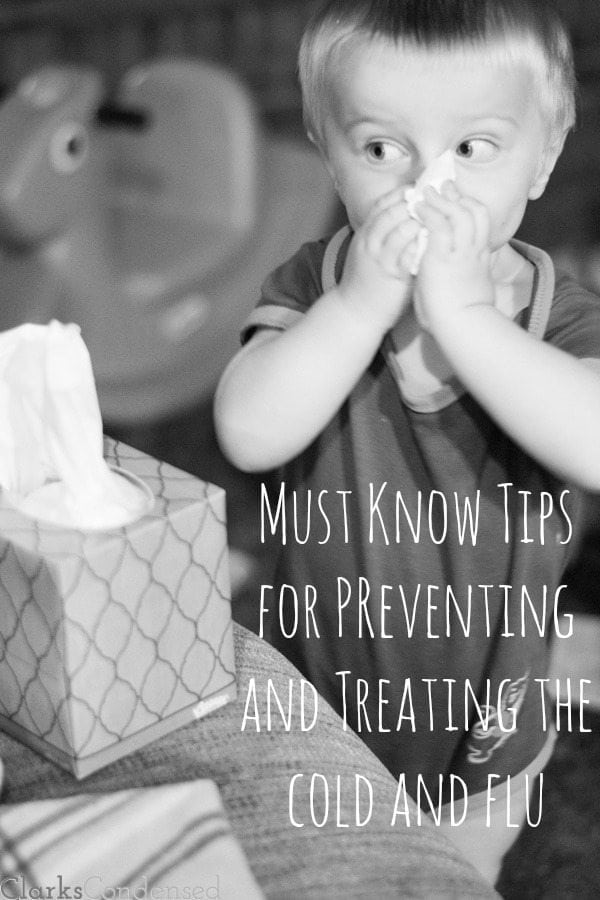
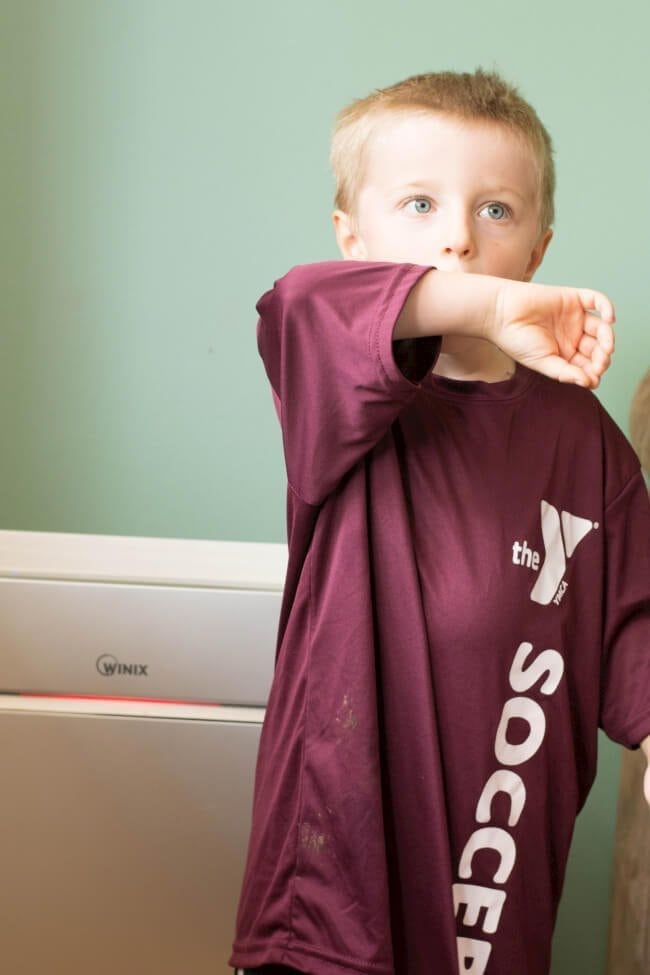




Four years ago I experienced a severe breathing and wheezing problem that my doctor diagnosed as chronic bronchitis with dust allergy. A year later, it worsened and I was diagnosed of COPD.
I came across Herbal HealthPoint (ww w. herbalhealthpoint. c om) December, 2018 and learnt about their successful herbal therapy for COPD. I immediately started on the COPD treatment; few weeks into the treatment, i began to notice a reduction in symptoms till it all vanished. I feel better and breath better. I Just wanted to share for people suffering from this horrible lungs disease.
Thanks for these tips. It’s important to be as educated as possible.
Very informative post! Thank you! I think the app sounds very useful! I’ll check it out.
My own daughter doesn’t have asthma, but as a teacher, I bet I had 2-3 students every year with severe cases. You cannot be too careful.
Growing up my brothers had asthma. It always really scared me. This is some great info!
Great tips! We had a bad scare with my 2nd son but it turned out not to be asthma – he was just really sick and needed an inhaler.
I’m so glad I read this. I thought my youngest may possibly have asthma because she does a lot of coughing at night, although for her it seems like it when she’s sick. I guess it definitely wouldn’t hurt to check it out just in case.
I used to only cough uncontrollably. I never wheezed so my mom thought I couldn’t possibly have asthma.
My son had that wheezing sound in his chest when he was a baby so we thought he’d have asthma like his late Dad but he never did which I am so thankful and grateful for.
When I was younger I had a friend with asthma and I’m amazed at how advanced the rescue inhalers are today. I agree. Early diagnosis is so important! Very informative post!
My sister was diagnosed with asthma when we were kids. I remember she had a lot of health issues when we were little, it was really hard for her to deal with and I couldn’t imagine being a parent with that struggle.
Thank you for all these information. It’s a great help, it is a tough sickness!
I am not very familiar with asthma. I had a friend with serious asthma when I was a child, and I imagine it could be very worrisome as a parent to deal with this. These are good tips to know.
With so much air pollution in our cities, more and more children are developing asthma. This is a great read for all parents. So many important things to be aware of when a child is diagnosed with asthma.
Great information! Thank you for sharing.
My granddaughter also had RSV when she was just a baby. It’s terrifying. She doesn’t have asthma, but I do and it can be terrifying. I hope that she never has to deal with it.
I work with a few kids who have asthma and it’s SCARY. It’s smart as a parent to be informed.
Thanks for sharing your experience! You made asthma sound less scary and a lot more manageable!
My son has seasonal asthma and he was diagnosed when he was a toddler. It has gotten a lot better. However, it was really scary at first.
I bet this would be tough. My kids don’t have asthma, but I know many who do.
Having a child with a chronic illness is so hard on the whole family. Getting early treatment and seeing the doctor regularly is so smart.
I agree!